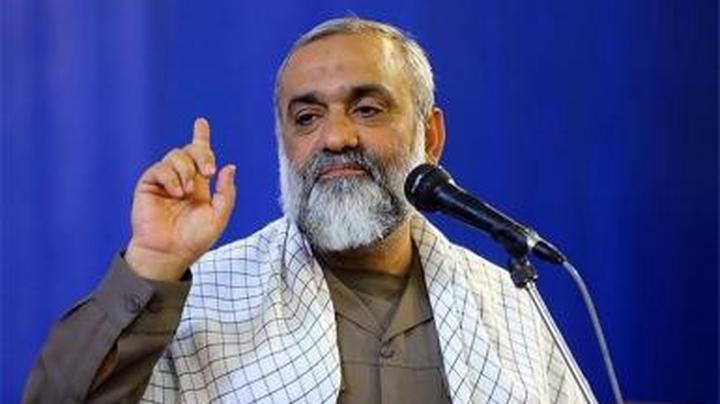According Iran International English, a top commander in Iran’s Islamic Revolutionary Guard Corps (IRGC), Mohammad-Reza Naghdi, has declared that the United States (U.S.) no longer poses a significant threat to Iran, referencing past confrontations between the two nations to highlight what he described as a shift in the balance of power.
Naghdi, deputy commander of the IRGC, made the remarks in a speech reported by Iranian state media, drawing attention to historical incidents where Iran challenged American power directly. His comments come amid ongoing tensions between Tehran and Washington, particularly over Iran’s nuclear programme, regional influence and U.S. sanctions.
“On the day when the whole world was afraid of America, we seized the ‘Den of Espionage’ (US embassy in Tehran in 1979) and captured its marines (in 2016). Now that it has no strength left, why should we be afraid?” said Naghdi.
His reference to the 1979 seizure of the U.S. embassy in Tehran recalls one of the defining moments of the Iranian Revolution. That incident led to a 444-day hostage crisis and a dramatic break in diplomatic relations between the two countries that has persisted for over four decades. The U.S. embassy was dubbed the “Den of Espionage” by Iranian revolutionaries who accused American diplomats of interfering in Iran’s internal affairs.
Naghdi also cited the 2016 capture of 10 U.S. Navy sailors who strayed into Iranian waters near Farsi Island in the Persian Gulf. The sailors were briefly detained by Iranian forces before being released the next day, but the incident was widely publicized and celebrated in Iran as a show of strength against the U.S. military presence in the region.
According to Naghdi, these events demonstrate that Iran has long been willing to confront the U.S. directly, even at times when Washington was considered a dominant global power. Now, he argued, the U.S. has weakened significantly, and no longer warrants the fear it once inspired.
“America is not what it once was,” he said. “It is struggling internally, its influence is fading globally, and its military deterrence is no longer effective.”
The commander’s comments reflect a broader narrative often promoted by Iranian leadership, particularly within the IRGC, that frames the Islamic Republic as a resilient and self-reliant power capable of standing up to Western adversaries. It also aligns with Supreme Leader Ayatollah Ali Khamenei’s frequent messaging about American decline and the need for strategic resistance.
While the remarks may play well with a domestic audience, particularly among hardline factions, they also underscore the enduring hostility between Tehran and Washington. Despite periodic attempts at diplomacy, including the now-defunct 2015 nuclear deal, both sides continue to engage in verbal and military posturing, especially in the Persian Gulf region.
The U.S. has designated the IRGC as a foreign terrorist organization, a move that Iran has repeatedly condemned as illegitimate. Iran, in turn, has accused the the North American country of destabilizing the Middle East through military interventions and economic sanctions.
As Iran prepares for elections, as well as navigates internal challenges, including economic pressures and public dissatisfaction, statements like Naghdi’s serve to reinforce the regime’s image of strength and defiance in the face of foreign pressure.
You Can Get More News Using The Button Below.

